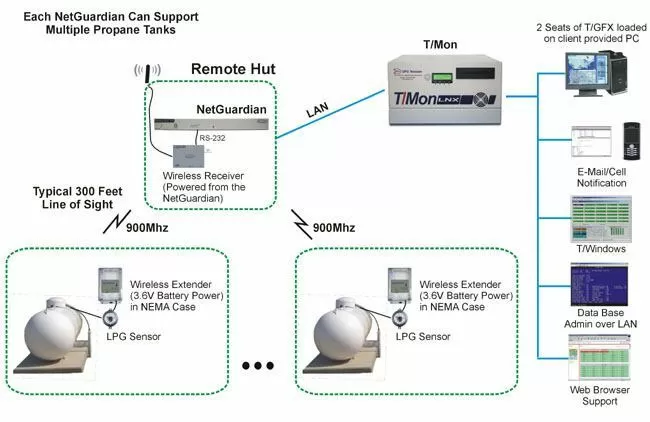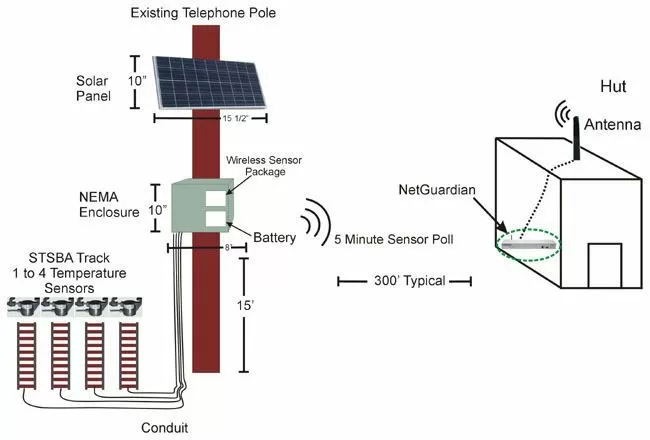Download our free Monitoring Fundamentals Tutorial.
An introduction to Monitoring Fundamentals strictly from the perspective of telecom network alarm management.
1-800-693-0351
Have a specific question? Ask our team of expert engineers and get a specific answer!
Sign up for the next DPS Factory Training!

Whether you're new to our equipment or you've used it for years, DPS factory training is the best way to get more from your monitoring.
Reserve Your Seat TodayDo you need greater visibility over vital network elements (like propane tanks, etc), but lack the infrastructure to report alarms?
New DPS technology now allows NetGuardian RTUs (with a serial port) to collect alarms wirelessly using 900Mhz or 2.4Ghz. This means you can now improve visibility without the need to run expensive conduit or cable.
Wireless Propane (or Diesel) Tank Monitoring.
Many companies simply find it impractical to run nearly $1,000 worth of conduit to a propane tank (and pay for trenching!) to install a $250 sensor. In this particular application, a propane sensor is installed at the tank with a wireless transmitter inside a NEMA case. The wireless transmitter interfaces with a nearby wireless receiver joined to a NetGuardian RTU.

Propane levels are then transmitted once per day to ensure proper levels. However, if the power fails (and the generator runs), the propane levels can be configured to transmit more frequently. This provides thorough visibility while conserving the battery levels.
Ultimately, this means you get alarm coverage over your fuel levels without having to run conduit to the tank. This saves money and provides you with isolation, so the conduit doesn't act as a lightning rod directly to your tank.
Railroad Track Monitoring.
Railroad track buckling is a major problem for many Railroad companies. Expanding tracks that begin to buckle create unsafe and very hazardous conditions. One DPS client needed a better way to get advanced alert when railroad tracks were at risk of buckling.

First, temperature sensors are installed at the track level. Each sensor then feeds into a wireless device (inside a NEMA enclosure) located near the track. Alarm events are then reported wirelessly to a NetGuardian RTU for standard alarm visibility (email alerts, text message alerts, etc.).
With temperature monitoring at the track level, this safety-focused DPS client now has greater visibility over the conditions of the track - meaning the safest possible transportation of passengers.
Learn More About Wireless Alarm Monitoring.
Do you have any other applications where wireless alarm monitoring would be useful? Get in touch with a DPS engineer to share your thoughts...
To receive a price quote or ROI analysis...
Call 1-800-693-0351